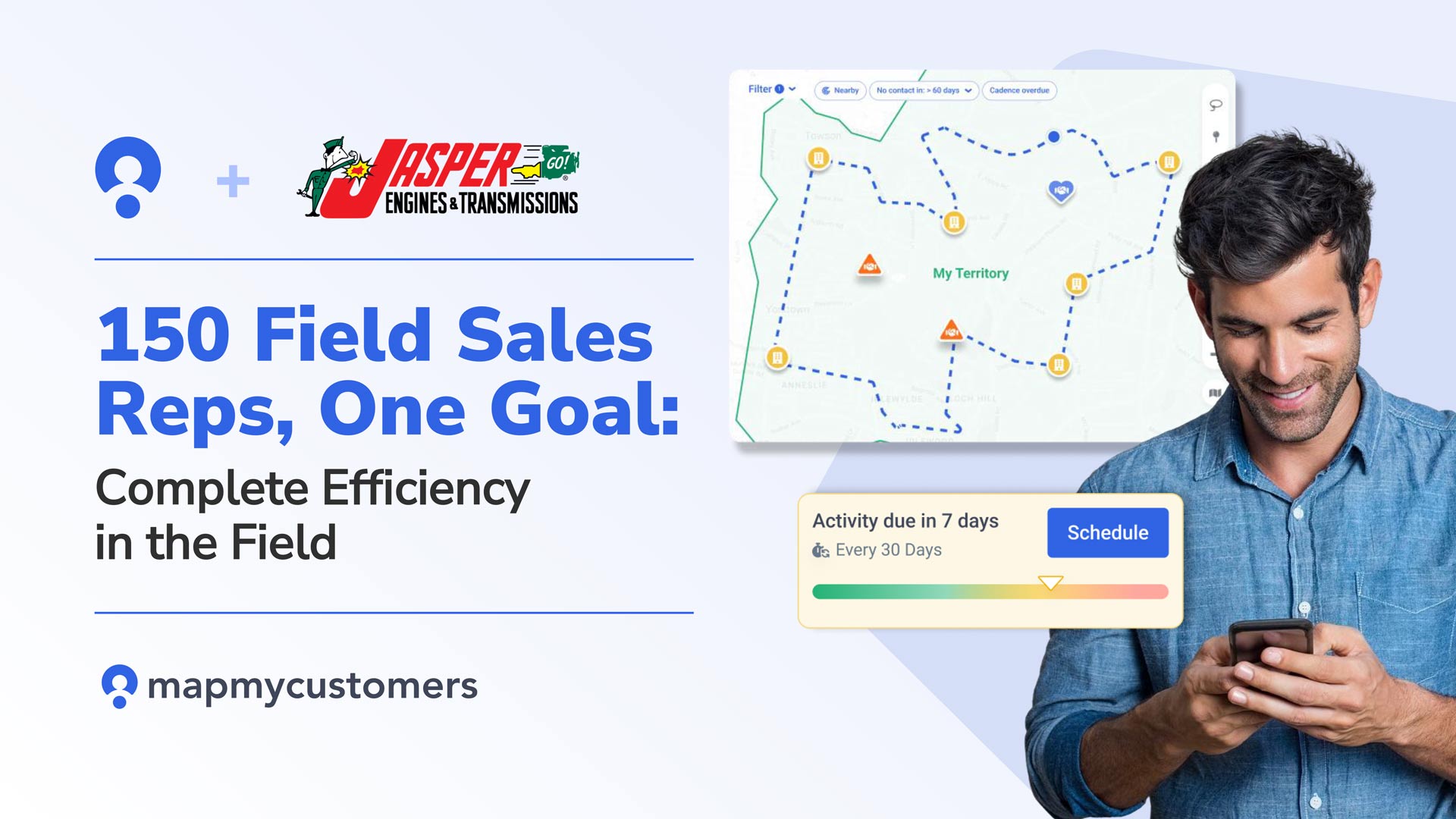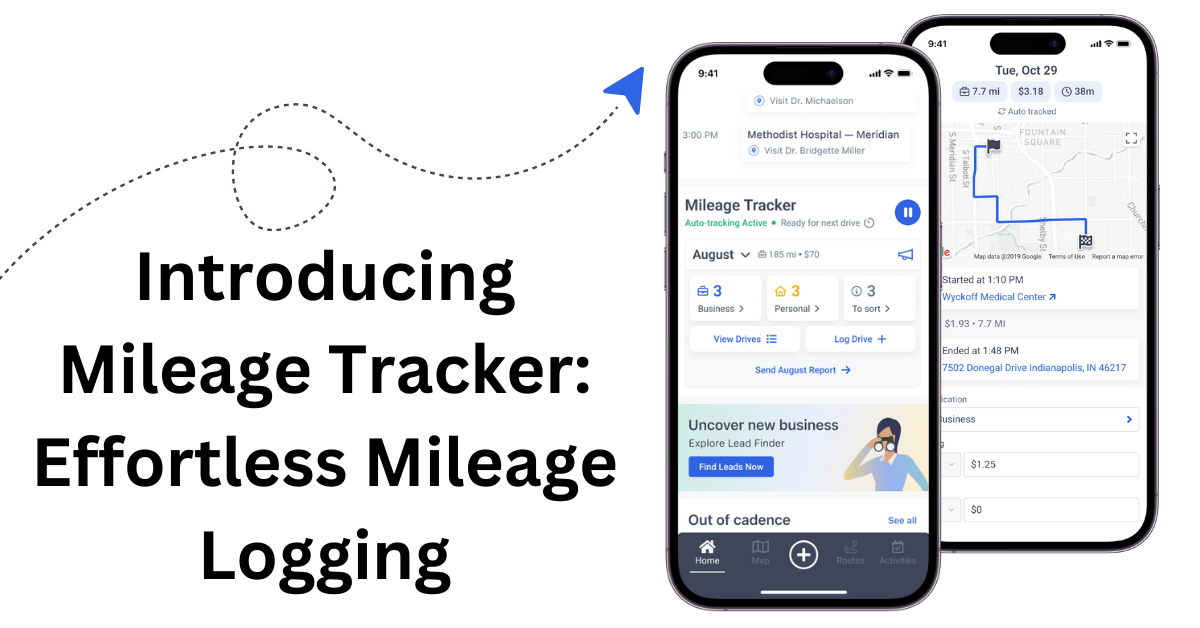Whether you just started a new job on a construction sales team or are looking for a way to get ahead of the competition – we have 5 insider construction sales techniques to help you accomplish that below. Take a moment to browse some construction sales training to build up your foundation.
Build a foundation with construction sales training
As anybody in the construction industry will tell you, you can’t outrun a bad foundation. That’s why, before you even think about putting plans to action, you need to be sure that you (and your entire team) are trained in the basics, including:
- Construction industry overall
- Current trends in construction
- Construction sales technology
Keep reading for tips to keep in mind as you expand you and your team’s knowledge.
Training on the construction industry overall
While many sales skills will be transferrable, construction is a highly specialized field. Start from ground zero by gaining familiarity with the ins and outs of sales in the construction industry.
You could (quite literally) spend a lifetime in construction and still not have mastered everything there is to know. But getting comfortable with the basics of the industry so you can hold your own in a meeting with construction clients is incredibly achievable.
The most straightforward way to learn is through observation. See if it’s possible to shadow a higher-up or someone within your team. Take notes, ask questions, and write down things you want to follow up on later. If you can’t, turn to experts online.
Another important step here is to take the time to familiarize yourself with industry vocabulary and jargon. While you can certainly always ask your team, you’ll gain more respect more quickly if it’s clear that you are at least familiar with the concepts.
Training on current construction trends
Of course, you want to stay up-to-date on the latest construction sales trends. Since you offer a fresh perspective to your new team, you’re perfectly positioned to more easily identify opportunities for streamlining processes and incorporating new ideas.
For example, in construction sales now, you’ll notice that:
- At construction sites, you’ll see more advanced technologies like drones and AR, or augmented reality (for allowing virtual walk-throughs of digital designs).
- In the office, you’ll see building information technology (or BIM) being used to manage models and data, allowing for more efficiency, as well as blockchain in smart contracts to protect information and payments.
- Across the board, you’ll see more emphasis on green buildings and eco-friendly construction practices, as well as more interest in modular or prefabricated construction.
And that’s only the beginning. See what new trends your company is embracing—as well as which ones they are neglecting, and try to evaluate if there may be an opportunity.
Training on new construction sales technology
In the next section, we’re going to break down some techniques that will help you to level up your construction sales game—and many of the strategies embrace technology. Of course, to use any technology efficiently, your sales team is going to need to be trained on proper usage.
The number one thing to remember is to not assume that everybody will just “get it.” Especially when it comes to things like CRMs where your team will share data, it’s crucial that everybody is on the same page in terms of what information you record and how.
Most major technology companies will offer demos for your team, so reach out with their sales team to schedule one. If official demos aren’t an option, select someone in-house to host a training. If you have a sales ops team, they would likely be the people to turn to!
Now that we’ve covered the training basics, it’s time to get into techniques you can use in the field!
1. Keep your data organized with CRM software
In construction sales, you’re often dealing with a metric boatload of data and documents. For just one project alone, you might have paperwork for your bid, conditions, scope of work, proposal, estimates, bills, bonds, etc.
Keeping everything organized is absolutely essential to success.
A CRM, or Customer Relationship Management software, is a digital application that allows you to store, manage, and track customer data in order to stay organized and identify new opportunities down the road.
If you’re familiar with sales in general, then you should be no stranger to the benefits of a CRM. But as a quick refresher, particularly when it comes to construction sales teams, CRMs are essential for:
- Automating all critical processes (like writing contracts, tracking sales, managing warranties, and managing client relationships)
- Increasing efficiency for project management (like providing contact templates, a means to share documents, and walk clients through buy / rent options)
- Reporting data (including analyses of bid-win ratios, average job size, etc.)
In general, software like SalesForce and Hubspot are popular, but you can also consider more construction-specific options like UDA Construction Online and SalesTouch.
(You can browse a fascinating case study for how construction companies can scale and grow using SalesForce here.)
2. Focus on the best customers with lead generation and enrichment tools
In general, construction sales tend to be low volume with long sales cycles, but very high reward—which means the quality of each customer and job is critical. You don’t want to waste your time (and tie up your income) pursuing less-than-ideal leads.
The easiest way to build your ideal customer avatar is by analyzing your historical sales data. Ask questions like:
- Which clients tend to be the most lucrative? (industry, size, job type, etc.)
- What is your average deal size?
- Which clients have you had positive work experiences with? (on-time pay, if they’re litigious, etc.)
- In which territories do you dominate, and where do you face the most competition?
Once you’ve determined your ideal client, you can use lead generation tools to find potential targets who fit the bill, and then use lead enrichment tools to further qualify your prospects.
Lead generation or prospecting tools are software you use to collect possible leads. Think of them as the digital equivalent to collecting business cards and cold calls.
Lead generation tools often rely on some sort of content marketing to hook a potential lead and then a form to collect their contact information. (Browse our top 10 lead prospecting tools here.)
Lead enrichment tools will take the information you collected a step further by automatically scraping the web for additional details about each prospect.
For example, you may only have the name and email for somebody who works at a target company—but your lead enrichment tool will comb the Internet and fill out the company name, size, industry, value, etc. There are many lead enrichment options to choose from, from stand-alone applications to plugins that enhance your CRM.
3. Give more accurate bids with construction bid estimating software
One place where construction sales stand apart from sales in other industries is the emphasis on the bid.
Simply put, a bid is an estimate that your team submits for how much time and money you believe it will take to complete their project to their specifications. Of course, nobody expects it to be dead-on to the cent—but your bid should be within range for what your construction team can actually accomplish.
Determining the proper amount to bid is an incredibly involved process that requires carefully considering dozens of factors aside from just plain material and labor cost, like:
- Do you currently have the capabilities for the project?
- What is your team’s schedule?
- Is the project presold or funded?
- Do you have an existing relationship with the client?
- Is a bid bond required?
- What allowances will you include for unknowns?
And more. Fortunately, there is construction bid estimating software that will help you calculate the cost of a project, making sure you remember to dot all your i’s and cross all your t’s before sending it over to the client.
You want your sales team to develop a reputation for accurate bids. In construction, in particular, it’s not uncommon for projects to have cost overruns, so if you can stick to your word, you’ll build trust and move out ahead of the competition.
4. End with a power close in construction sales
As any sales rep knows, you want to close your sales pitch with a “bang!” But the less glamorous fact of the matter is that in order to achieve that high impact endnote, you need to do the work behind the scenes ahead of time to fully understand what your client wants and needs.
You can get your construction team into trouble down the road if you aren’t careful to cover 100% of your bases during this critical time. The proposal you ultimately deliver should include documents like:
- General construction contract agreement
- Scope of work
- General conditions
- Special conditions
- Specifications
- Bill of quantities
- Cost estimates
- Drawings
- Insurance coverage / bonds
Remember: it will often take many, many follow-ups to get to this point. That doesn’t mean you’re doing it wrong! In fact, on average, it takes at least five follow-ups to get a sale over the finish line.
That means stop worrying about “annoying” your prospect and start focusing on expressing how you can meet their needs!
5. Track your progress and optimize for better construction sales processes
Every single technique listed before this one can be honed and optimized over time. The trick is to track all the data you can, and then take the time to periodically review for insights with the rest of your sales team—and, ideally, your sales ops team.
Think of a sales ops team as the engine of your sales machine. When you have a sales ops team at your company, it allows you—the sales reps—to spend more time selling and less time worrying about managing data, implementing new technologies, and identifying trends.
They primarily deal with:
- Data (management, collection, analysis, forecasting, implementation)
- Strategy (territories, lead generation, technology, workflows)
- Support (training, communication, incentives)
Alongside your sales team, sales ops specialists can help build out effective sales tools like action calendars, referral sales programs, coordinated lead generation strategies, and more.
If your company doesn’t already have a sales ops team, consider adding one. You can go from no sales ops team to a fully functional one in just 90 days with a 30-60-90 plan.
Putting it all together
In conclusion, once you build a foundation in your new construction sales position through training, you can align your team for success by embracing smart technologies, using data-driven sales strategies, and honing your workflows over time.






